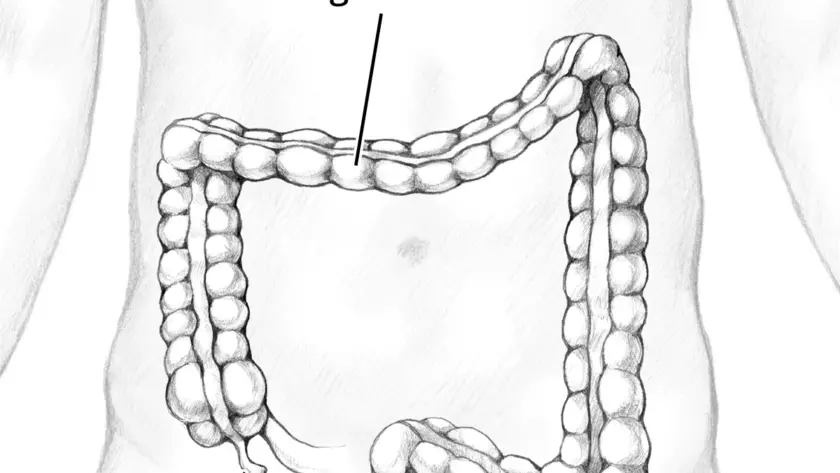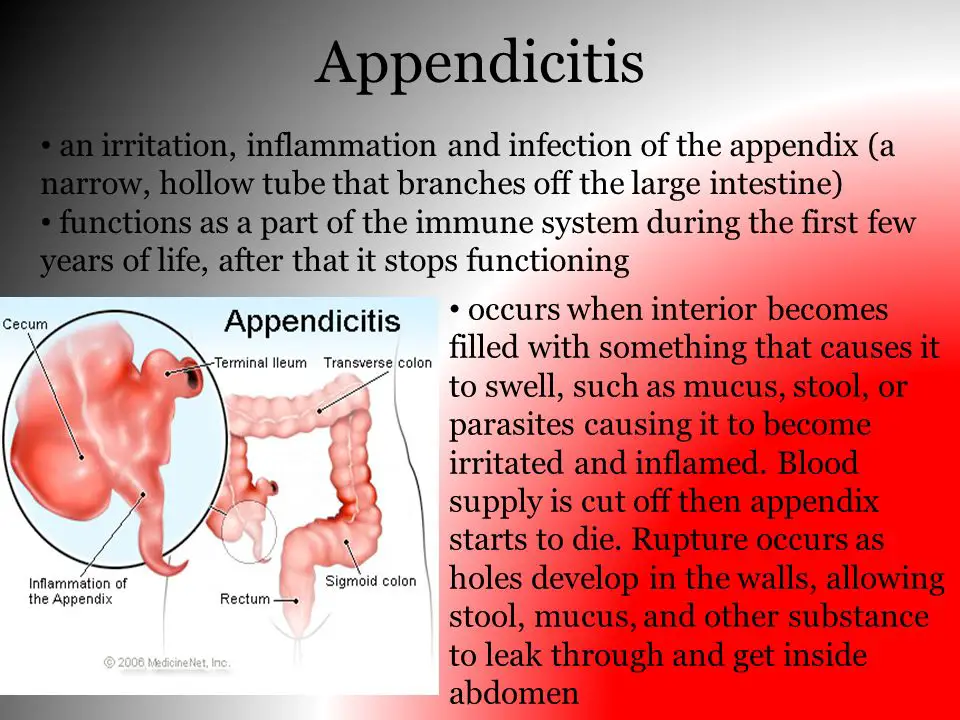We’re all familiar with the fact that we have an organ called an appendix – and more importantly that it can cause some scary trips to the ER. But does anyone know what an appendix actually is?
The appendix is a small, pouch-like organ located in the lower right side of the abdomen. While it has long been considered a vestigial organ with no purpose, recent studies suggest that the appendix may play a role in our immune system.
However, when the appendix becomes inflamed or infected, it can cause a painful condition called appendicitis, which requires immediate medical attention. In this article, we’ll discuss nine crucial things you need to know about your body’s appendix to keep it functioning properly and avoid a trip to the hospital that can easily be avoided.
From understanding the symptoms of appendicitis to learning how to prevent this condition, this article will provide you with the knowledge you need to take care of your appendix and avoid a medical emergency.
Here are nine facts that will help you become well-versed in why you have one, what it does, and what might be signs of trouble.
“Recently, some new evidence suggests that the appendix might play a role in repopulating good bacteria in your body,” says Niket Sonpal M.D.
“It’s thought of as repository for good bacteria and flora that’s supposed to help replenish in the case of a catastrophic wipeout—like in the case of antibiotics. Though if you do have it removed after a bout with appendicitis, you’ll still be perfectly fine,” says Sonpal.
If your appendix bursts and goes untreated, it can cause serious trouble, even potentially fatal. And while there’s no real way to ensure you’ll never have appendix issues, there are things you can do to lower your risk of scary complications like appendicitis.
Your appendix is basically a long, skinny tube located in the quadrant of your stomach. If one of the ends gets blocked, it can cause major problems. This can happens when feces plugs it up.
The Signs of Trouble Aren’t Always Obvious or Immediate
The first sign of appendicitis is actually going to be pain around your belly button. The pain will then migrate over to the right side of your abdomen.
Even after it moves, it’s not always so easy to tell the difference between pain associated with your appendix and pain associated with your cycle. If you don’t typically have pain during that time of the month or the pain feels like it’s moving, see a doc to be safe.
According to the reigning research from the American Journal of Epidemiology, you’re slightly less likely to develop appendicitis if you’re female. The reason may be due to higher fiber intake by women.
Abdominal pain is the most common reason for a visit to the emergency department, accounting for 8 million of the 119 million visits, according to research published in the International Journal of General Medicine. And the most common cause of all the stomach aches is—you guessed it—appendicitis.
“After the appendix actually ruptures, it gets more complicated and dangerous,” says Sonpal. When you have appendicitis, the deflated balloon-like structure starts to swell. If that happens and your appendix bursts, it starts leaking all sorts of nasty stuff (remember all that bacteria?) into your bod. Not good. In this case, docs have to open up the abdomen, clean things up, and potentially repair other organs that got damaged by the spill, which can cause long-term issues like pain and scarring.
When a person develops appendicitis, the appendix becomes inflamed and swollen. “It’s kind of like a pimple in your belly and as we know, the way pimples tend to go away is by popping,” says Sonpal. If the appendix pops, or bursts, things get serious pretty quickly.
Appendicitis can cause the following symptoms:
- Abdominal pain
- Loss of appetite
- Nausea and vomiting
- Fever and chills
- Difficulty passing gas
If left untreated, this is when the inflamed appendix can pop like a pimple, or rupture, which can lead to a serious infection in the abdomen. This condition, known as peritonitis, can cause the following symptoms:
- Severe abdominal pain accompanied by swelling and tenderness.
- High fever, along with feeling ill.
- Nausea and vomiting possibly accompanied by diarrhea.
- Difficulty passing gas, feeling bloated and uncomfortable.
- Rapid heartbeat, feeling weak and dizzy.
In summary, if you experience any of these symptoms, it’s important to seek medical attention immediately to avoid serious complications.
While the exact function of the appendix is still being studied, there are some steps you can take to keep it healthy and avoid the risk of appendicitis.
Here are Nine Things you can do to Keep your Appendix Functioning Properly:
- Eat a healthy diet: A diet rich in fiber, fruits, and vegetables can help keep your digestive system healthy and reduce the risk of constipation, which can contribute to appendicitis.
- Stay hydrated: Drinking plenty of water and staying hydrated can help keep your digestive system functioning properly and reduce the risk of constipation.
- Exercise regularly: Regular exercise can help keep your body healthy and reduce the risk of digestive problems, including appendicitis.
- Manage stress: Chronic stress can weaken the immune system and increase the risk of infections, including appendicitis. Find ways to manage stress, such as meditation or yoga.
- Avoid smoking: Smoking can weaken the immune system and increase the risk of infections, including appendicitis.
- Practice good hygiene: Washing your hands regularly and practicing good hygiene can help reduce the risk of infections that can lead to appendicitis.
- Seek prompt treatment for digestive issues: If you experience digestive problems such as diarrhea, constipation, or abdominal pain, seek medical attention promptly to avoid complications.
- Maintain a healthy weight: Obesity can increase the risk of digestive problems, including appendicitis. Maintaining a healthy weight through diet and exercise can help reduce this risk.
- Be aware of your family history: Some studies suggest that there may be a genetic component to appendicitis. If you have a family history of appendicitis, be aware of your risk and take steps to keep your appendix healthy.
In conclusion, taking care of your appendix is important to avoid the risk of developing appendicitis and experiencing potentially serious complications. By following the nine crucial steps outlined in this article, you can help keep your appendix healthy and functioning properly.
By being proactive about your health and taking these steps to care for your appendix, you can reduce your risk of needing to visit the hospital for appendicitis.









